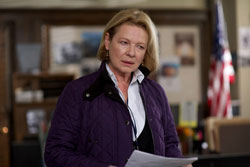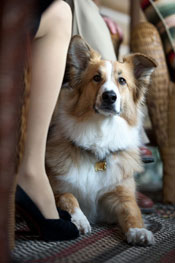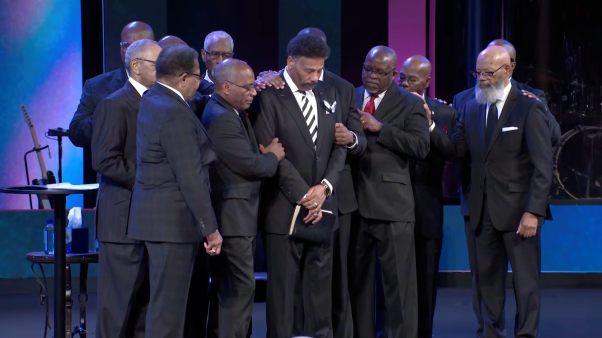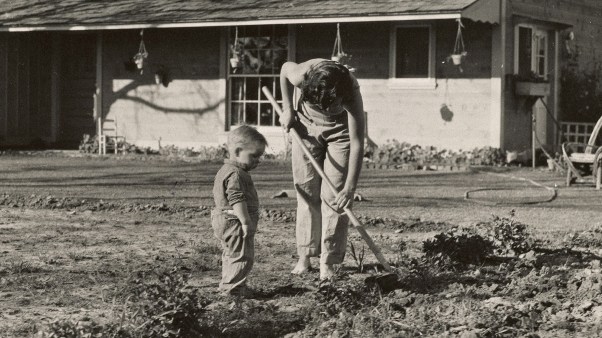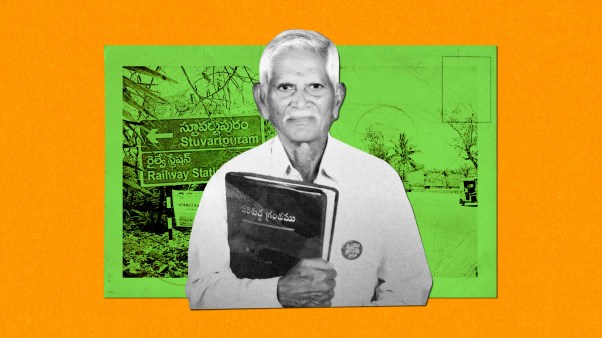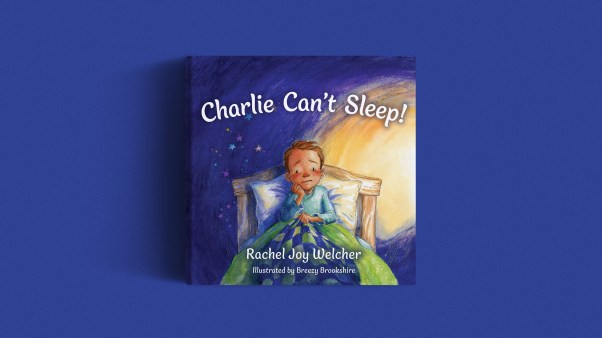Any ‘dog’ movie has severe, dramatic limitations, no matter how refined a script or cast. Still, Lawrence Kasdan knew there was something to be mined from the idea that pets reveal a lot about their owners. Darling Companion distances itself from Air Bud or Beethoven’s 4th and steers closer to a hybrid of Marley & Me meets a thirty-fifth high school reunion. Requisite hokeyness aside, this mutt-centered odyssey is entertaining and even worthwhile.
Beth Winter (Diane Keaton) is watching her nest become emptier by the day. Her husband Joseph (Kevin Kline) is more occupied with his work as a spine surgeon than any spousal or familial concern. Their marriage is no Kramer vs. Kramer but it’s entered a stage of dreary detachment. Beth and her youngest daughter, Grace (Elisabeth Moss), discover a stray dog while driving and appropriately name it Freeway.
Joseph’s not that thrilled about Freeway, but Grace is happy about the dog’s new vet, Sam (Jay Ali). Grace and Sam get married and the family goes up to their mountain home for the wedding. After the new couple departs for their honeymoon, Joseph—preoccupied with business on his iPhone—loses Freeway. His sister, her son and her new boyfriend (Dianne Wiest, Mark Duplass and Richard Jenkins) are enlisted to help search for Freeway and, by extension, realign with their love for each other. The mystical gypsy and caretaker, Carmen (Ayelet Zurer), also assists in the journey with her questionable visions and New Age wisdom.
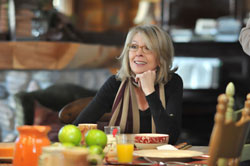
Companion alternates between being silly and self-aware and almost too corny to put up with. There’s enough genuine laughter and realism to cash in when the film hits cheesier territory. It’s a matter of deposit and withdrawal, the film in a mambo with sentimentalized bankruptcy. Even the conclusion is melodramatic and clichéd, but the better points of build-up leave you somewhat satisfied. The addition of Zurer’s character almost derails the film entirely, with her perennial and pithy revelations such as “don’t give up hope, hope is all you have.” When played up for comedy, her empty platitudes are duds; when done for drama, eyes will invariably roll.

Moreover, an animated dream sequence involving Freeway’s trials and tribulations is utterly misplaced and incapable of reaching the prize it seeks. Luckily, for every instance of synthetic sentimentality are two or three of genuine wit and humanity.
Keaton’s trademark charm and Kline’s sardonic cleverness save the movie. Jenkins’ performance as a lovable simpleton in the midst of cynical intellects is another oasis. Similar to his character in 2008’s Burn After Reading, his control over kind unawareness and down-home naïveté makes you wistful for a world operated the way he sees this one spinning all the time. Wiest turns in another good performance as a neurotic divorcee, a role she’s honed to perfection as a regular player in Woody Allen’s work.
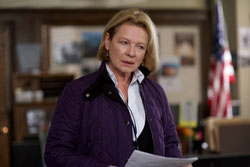
At the film’s start, most of the relationships are thoroughly nonreciprocal. Kline and Keaton are getting by as individuals who have forgotten to check the interest accrued on their marriage vows. Freeway is easy to love because he cannot use language to hurt or budget his time to avoid familial interaction. He is there to be loved and give it back in kind. He is innocent and aware of his role in the universe: You feed me and walk me, I stay by your side.
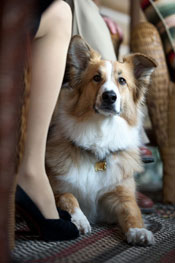
Through searching for innocence lost in a frightening world, the characters’ appreciation for love begins to deepen. “Love is love, it doesn’t matter if it’s a dog,” says Keaton. While Kasdan emphasizes the value of man’s best friend, he suggests that there is only one proper “darling companion” for the journey of humanity. As people make their way through time, space, and matter, they need to be brought into alignment with each other. Life is life together, or nothing at all. The puzzle pieces only find their end when they all learn how to accommodate each other. One scene depicts Keaton putting Kline’s dislocated shoulder back in place and it doesn’t take your crazy college lit professor to see what that’s supposed to symbolize. Relational reciprocity can only be grasped at through aligning with another person’s purposes. In order to align, you need mutual, selfless love.
Still, the film is at times a little out of alignment with itself. The Kasdans’ screenplay knows where it’s headed but takes every alleyway to get there. The film is lukewarm through and through but appetizing enough to not spit out wholesale. Darling Companion is no key to self-discovery, no cinematic masterpiece, no masterful exploration of the unknown. But it’s not trying to be any of those things anyway; it’s a dog movie about people and a decent one too.
Talk About It
Discussion starters- How do our relationships with pets hamper or encourage our relationships with family members?
- What are some of the best ways for us to stay in “alignment” with God? With one another?
- How can we prevent our work from alienating us from family concerns?
The Family Corner
For parents to considerDarling Companion is rated PG-13 for some sexual content including references, and language. There are quite a few scenes in which sexual contact is referenced, mostly between the two unmarried couples (Penny and Russell, Bryan and Carmen). Penny and Russell engage in some bedroom foreplay but nothing is seen on screen. There are also some minor expletives.
Photos © Sony Pictures Classics
© 2012 Christianity Today. All rights reserved. Click for reprint information.



